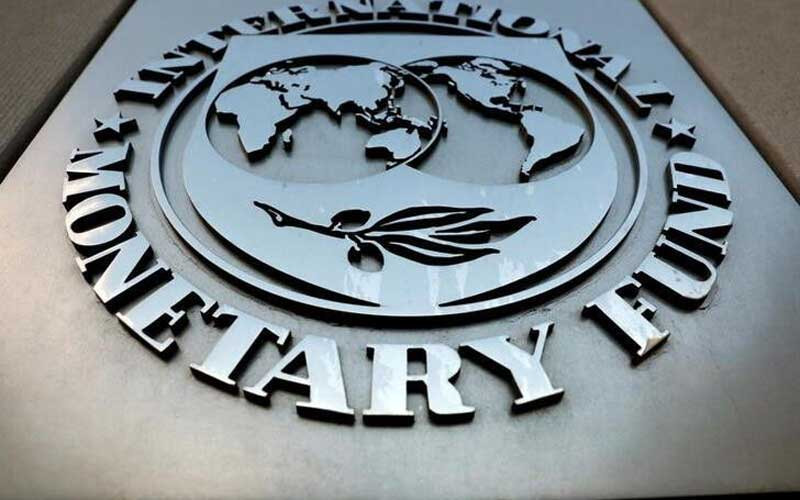
ZIMBABWE’s efforts to tackle its long running debt crisis will be predicated on authorities’ sincerity and readiness to roll out sweeping reforms.
On assuming power about five years ago, President Emmerson Mnangagwa’s administration took over an economy that was already in debt distress, according to several International Monetary Fund (IMF) analyses.
At the end of 2022, the Zimbabwe Public Debt Management Office estimated the debt at US$17,5 billion, with arrears and penalties – slapped on Harare due to long running defaults – making up a significant part of the debt profile. Still, the US$17,5 billion could be far less than what Harare owes creditors including the African Development Bank (AfDB), the World Bank (WB).
About three weeks ago, respected industrialist Busisa Moyo - who leads a team of distinguished business leaders advising Mnangagwa on economic issues, said the country’s debt was far worse than portrayed.
Moyo, chairperson of the macroeconomic cluster in Mnangagwa’s Presidential Advisory Council, said the country’s debt had surged to US$19 billion.
But whatever the figure might be, Zimbabwe’s debt has had negative implications on authorities’ ability to rebuild an economy that has been haemorrhaging for 23 years.
Protracted defaults since 2000 have seen the country being shut out of international debt markets.
As a result, infrastructure has collapsed, and packages meant for social services have in the past two decades been deployed to debt service.
- Mavhunga puts DeMbare into Chibuku quarterfinals
- Bulls to charge into Zimbabwe gold stocks
- Ndiraya concerned as goals dry up
- Letters: How solar power is transforming African farms
Keep Reading
This week, analysts said bold steps towards compensating white farmers expelled from prime land during violent agrarian reforms in 2000 would also be key.
During a no holds barred high level dialogue on Zimbabwe’s debt last week, former Mozambican president Joaquim Chissano said reforms would be key to resolving the debt crisis.
Chissano, a revered pan-Africanist, is stirring the dialogue, along with African Development Bank (AfDB) president Akinwumi Adesina.
They hope that once Zimbabwe settles its commitments, lenders will release crucial lifelines required to rebuild the economy.
Chissano said if elections expected later this year are clean, they will enhance Harare’s chances of re-engaging International Finance Institutions, who rate countries on their willingness to adhere to democracy.
Adesina said the push for broad reforms was not driven by ulterior motives to achieve “regime change” in Zimbabwe.
Some analysts say Mnangagwa’s reluctance to bring political and economic changes is based on the rationale that doing so would set in motion a chain of events leading to his downfall.
They argue that: “Mnangagwa’s regime cannot reform itself out of power”.
Decades of international isolation have stalled efforts by Zimbabwe to revive its tanking economy, which is characterised with rocketing inflation, widespread de-industrialisation and currency volatilities.
Zimbabwe’s US$17,5 billion debt represents over half of its Gross Domestic Product, which is estimated at about US$30 billion.
Britain and the US, among other Western nations, have over the past two decades stated that sanctions imposed on Harare from 2000 would only be scrapped if Harare shows genuine desire to uphold human rights and roll out key electoral reforms.
Mnangagwa’s administration agrees that sweeping reforms and adhering to the dictates of the constitution would be a key factor in his efforts to address the debt crisis.
But it has been found wanting on implementation.
Escalation of politically motivated violence, a vicious clampdown on opposition activists and civic society have been often cited as evidence that Harare is unwilling to reform.
Those fighting to protect his administration fear that implementing reforms would weaken Mnangagwa’s bid to consolidate his grip on power.
Mnangagwa ascended to power in 2017 through a military-backed transition that toppled Mugabe.
Economist Tawanda Purazeni contends that reckless public spending, rampant corruption and pillaging of natural resources has frustrated efforts to tackle the debt crisis.
“Corruption, misgovernance and misplaced priorities are key hindrances towards resolving the debt problem,” he said this week.
“This is compounded by fiscal indiscipline by the government through the issuance of Treasury Bills, which are not settled on time. This further balloons the domestic debt,” Purazeni postured.
Of the US$17,5 billion debt, domestic debt accounts for US$3,4 billion.
Restoring fiscal and monetary discipline, reducing public expenditure, curtailing corruption and broadening Zimbabwe’s democratic space are part of the reform matrix that has been proffered to settle debts and revive the stagnating economy.
Implementing recommendations by the Kgalema Motlanthe Commission, which was set up in 2018 by Mnangagwa to probe the fatal shooting of civilians in the aftermath of that year’s contested polls, was also highlighted as important by stakeholders during last week’s crucial debt meeting.
“The governance working group would allow us to tackle and make measurable progress on critical issues of freedom of speech, human rights protection and implementation of laws in line with the constitution, as well as the implementation of the Motlanthe Commission of inquiry and compensation of victims,” Adesina said.
Political analyst Reuben Mbofana contends that Harare’s reluctance to implement reforms was its biggest undoing.
“There is no appetite by Mnangagwa’s administration to implement reforms. Zimbabwe has immense natural resource wealth to service its debt. What is simply lacking is political will,” he said.
“The longer the country continues to conduct shady elections, the longer the debt remains unresolved.”
The deleterious impact of Zimbabwe’s huge debt, which remained unresolved over Mugabe’s near four-decade rule, has frustrated efforts by Zimbabwe to access fresh lines of credit from multilateral lenders.
Without implementing tangible reforms, Harare’s multi-billion debt cannot be wished away by barking hollow rhetoric.







